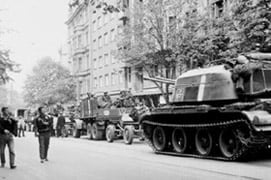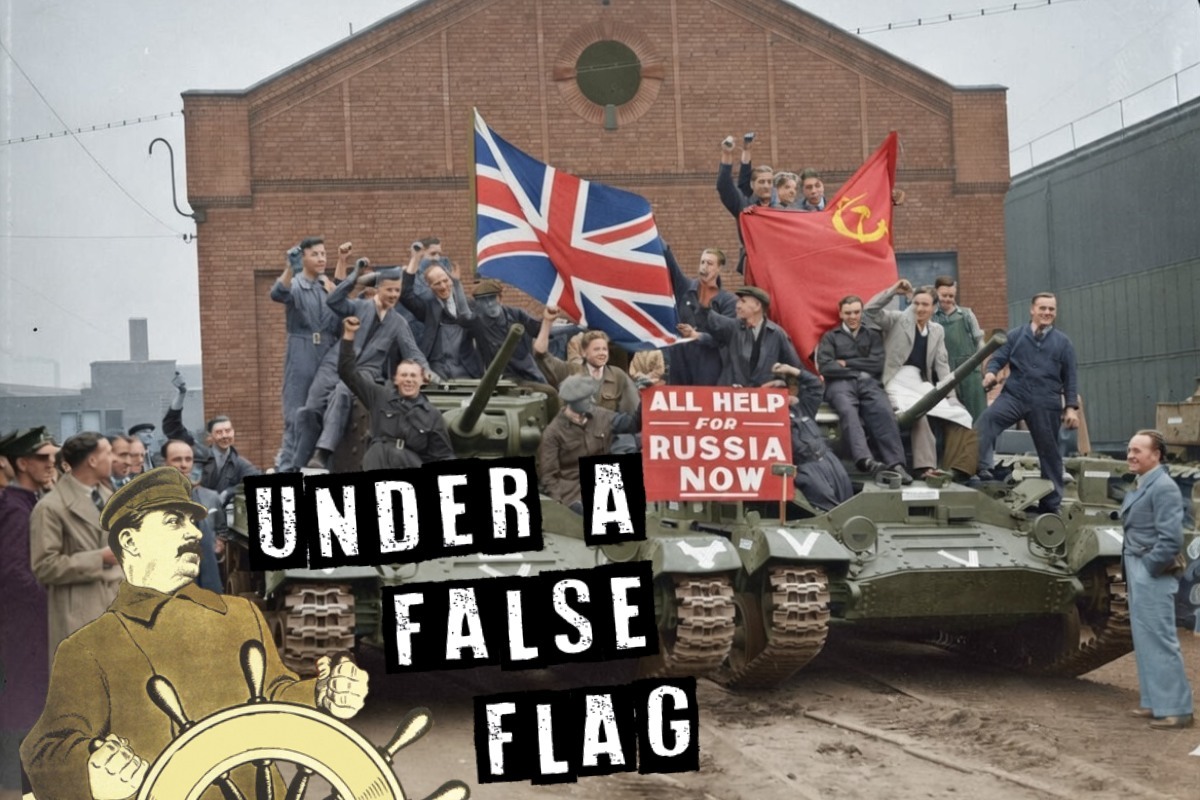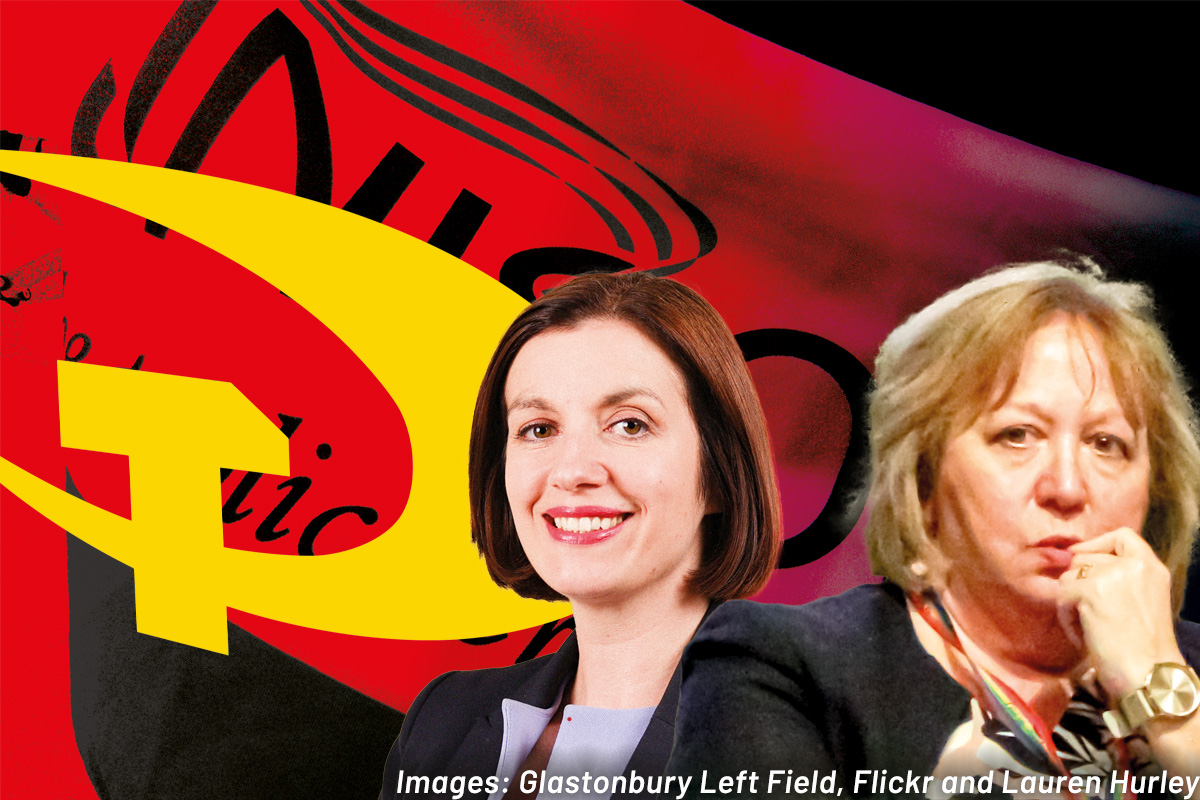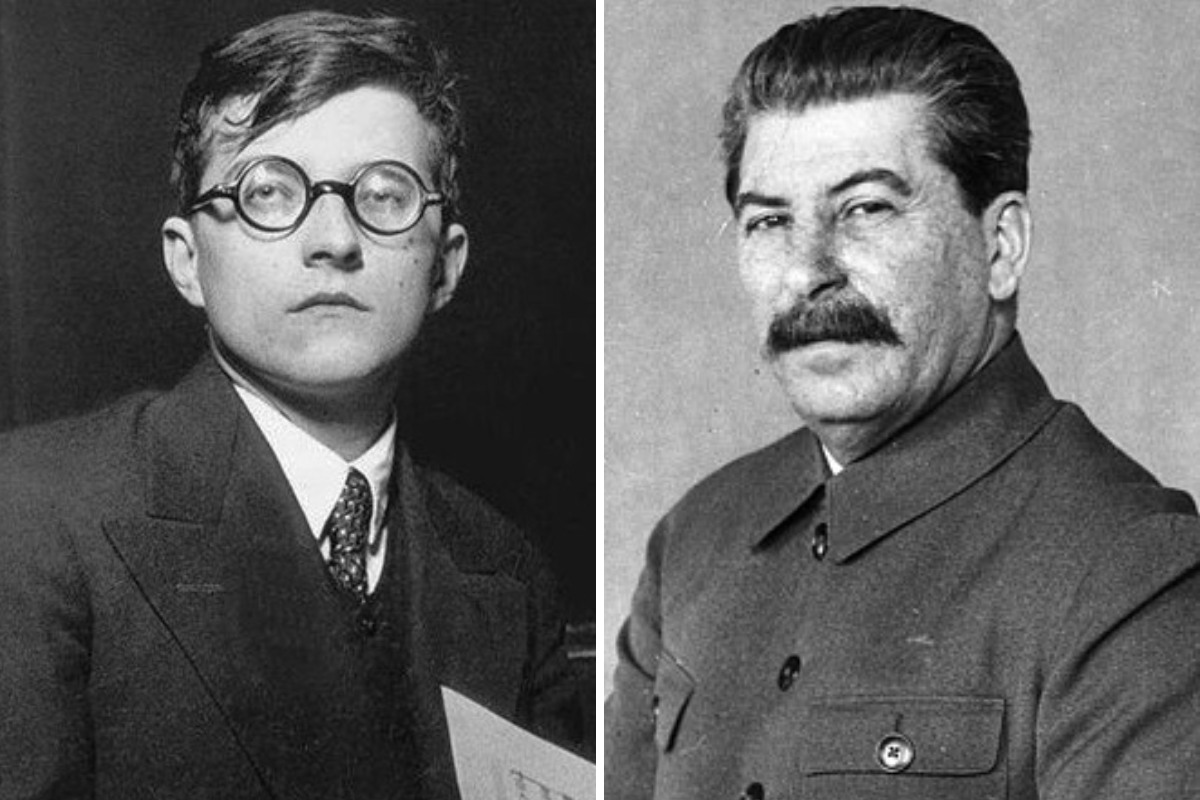Why
the Kremlin invaded
The movement in Czechoslovakia
was nowhere as highly developed as the
movement in Hungary or Poland
in 1956. There were no workers’ councils, nor were the workers armed, as in Hungary, where
the Russians intervened.
But even in Poland
in 1956, there was a general strike and an insurrection in Poznan!
Yet the Russians allowed Gomulka to control the situation by means of reforms in Poland in
1956, but could not allow Dubcek to do the same thing in Czechoslovakia
in 1968. Why?
The answer is to be found, partly, in the changed international balance
of class forces since 1956. The intervening period has seen the
monolith of world Stalinism shattered into pieces by a series of splits
along national lines. In a very striking manner, Trotsky’s prognosis of
1923 has been
confirmed in the 1960s: that the theory
of "socialism in a single country", which substituted the narrow,
national interests of
the Russian bureaucracy for those of the international working class,
would inevitably
result in the nationalist degeneration of the Communist International.
Since the events of 1956, the Stalinist bloc has suffered the split-off of China,
which has led, not to the
creation of two Stalinist
camps, but to the opening up
of a whole spectrum of
"national roads to socialism".
With the Sino-Soviet split, the policies of the Rumanian and
Yugoslav bureaucracies, Gomulka’s "Polish Road", etc. the stranglehold
of the
Russian bureaucracy
over the other bureaucracies
and also over the CPs of
the West has greatly weakened.
The extent of the degeneration
can be gauged from the
frantic attempts of the
Russian
bureaucracy to drum up support for
a world meeting of CPs for the
purpose of a solemn excommunication
of China.
Compare this to the ease with which Stalin was able to expel Yugoslavia from
Cominform and the
difference is clear. Nowadays,
even the Castro bureaucracy
in Cuba,
resting on the
narrowest basis of any Stalinist
state, can afford to assert its
"own" road to "Socialism",
as can be seen from the
purge of the pro-Moscow wing of the Cuban CP in January of this year.
Even more significant was the Budapest Conference of CPs in March.
Only 67 Parties even bothered to attend, as against 81 in 1960.
Cuba, Yugoslavia, N. Korea and N. Vietnam
were absent. Rumania walked
out; of the Asian
Communist Parties only the
pro-Moscow Indian Communist Party attended.
In the past decade, Stalinism has suffered a series of blows which have undermined its power
and prestige internationally.
No longer can the "Moscow
Line" command the blind
fanatical
adherence it had before
the
war.
But far more important even than this fact have been the developments amongst the masses of
Eastern Europe and Russia itself.
The ferment
among the Russian writers
is
only the tip of the iceberg as far as the discontent of the masses in Russia itself is
concerned.
It is an amazing comment on the weakness of the bureaucratic regime in Russia
that 50 years after the revolution
a whole period of so-called
"de-Stalinisation" and "Thaw",
after all the promises about
"building Communism in 20
years",
it has to sentence writers to hard labour for the crime of demanding the implementation of the Soviet Constitution. But far more significant than
the writers’ trial
earlier this year was the stream of protests by Soviet intellectuals that followed the sentences.
The grandson of the famous Soviet diplomat Litvinov issued an open letter condemning the trial, and signed his own name
and address in
open defiance of the secret
police. The son of the Soviet general Yakir, murdered by Stalin in the
infamous purges, issued a
similar
protest, in which he warned that Stalinism still existed and called for the re-habilitation of Leon Trotsky.
Yakir also signed his name and address. After the protests, the Bureaucracy clamped down hard in an attempt to gag the
intelligentsia. The works
of Alexander Solzhenitsyn who only a few years ago was hailed by the Soviet press as "a new Dostoevsky" have been
banned. Solzhenitsyn
had been leading the campaign
against censorship and for freedom
of the arts in Russia.
The developments in Czechoslovakia
could not be tolerated because of the effect they would have upon the Soviet people, starting with the intelligentsia. The
effect upon the Ukraine, which borders on Slovakia and which has been seething with discontent in the last
eighteen months,
would be particularly serious.
The abolition of the censorship in Czechoslovakia would
leave the Russian
bureaucracy without any
grounds
to resist the insistent
clamour
of a growing number of Soviet
intellectuals to remove the dead hand of bureaucratic control from literature and the arts. But far more serious would be
the effect on the working
class itself.
The free airing of opinions in the press would provide a focal point for organised expressions
of discontent, leading
inevitably in the direction of a new programme and a new party. Already in Russia
there are hundreds
and thousands of underground study circles, where workers read and draw their
own conclusions from the
works of Lenin, which are
still
distributed in editions of hundreds of thousands in the Soviet Union.
The
tragedy of Czechoslovakia
was that the Czech people found themselves leaderless, disarmed and unprepared.
The Dubcek clique preferred to see the country occupied rather than arm the
working class. For all his brave words, Dubcek was prepared to eat dirt, rather
than risk sparking off the spontaneous mass movement of the working class.
None of Lenin’s safeguards remained
The glaring contrasts between Soviet reality and the ideas of Lenin
is becoming clear to all. The 1919 Programme of the
Bolshevik Party, drawn up
mainly by Lenin, laid down the
following basic pre-requisites for workers’ power, not "under
Socialism", not "under Communism"-but in the very first stages of
Soviet power, in the period of transition from capitalism to socialism:
-
Free and democratic
elections, with the right of recall -
No official to receive a
higher wage than a skilled worker -
No standing army, but the armed people
-
No permanent bureaucracy: "Every cook should be able to be Prime Minister".
Of these
elementary safeguards of workers’ democracy, not one remains in force in Russia
and Eastern Europe today. That is why the movement of the
workers in the East inevitably takes up the demand for a return to Lenin, not
back to capitalism, but for the purging of the Soviet state of bureaucrats,
careerists and parasites, for a genuine socialist workers’ democracy.
In Czechoslovakia, as in Hungary in 1956 (where the workers
actually set up workers’ councils to rule the country, Soviets in all but name)
the working class would undoubtedly have moved in this direction. Already, in
at least one Czech journal, the idea of Soviets (i.e. genuine, democratic
organs of workers’ power) had been put forward. In the course of events, the
workers would have learned by their own experience the need to by-pass the
limitations imposed on them by the Dubcek clique.
The
Hungarian workers in 1956 came late on the scene, after the stage had been set
by the movement of the students and intellectuals, but when they did intervene,
they went farther than the "liberal" bureaucratic Nagy and Kadar had forseen.
The movement transcended the "calm", "dignified", "constitutional" nonsense of
the Nagys and Dubceks and became a genuine workers’ revolution; not a social counter-revolution to overthrow
the Socialist property relations, but a political
revolution to oust the bureaucracy and establish a healthy democratic workers’
state.
That
movement of the Hungarian workers was only crushed by the tanks of the Russian
bureaucracy at tremendous cost and effort. Now, in 1968, they were faced with
an awkward choice: to intervene would mean yet another terrible blow to the
power and prestige of world Stalinism; not to intervene would probably lead to
an even more dangerous situation for the bureaucracy, and one which will not
stop at the borders of Czechoslovakia.
The
invasion bears all the hallmarks of a sudden, panic move. The behaviour of the
Russian leaders over the past months has been inconsistent, vacillating,
dilatory. There may even be some substance to the speculation of bourgeois
commentators about a split in the bureaucracy.
At all
events, the invasion of Czechoslovakia
must not be seen as proof of the strength of the Russian bureaucracy but as a
move dictated by fear, a move that demonstrates beyond doubt the extremely
shaky basis upon which Russian and East European Stalinism exists.
On the face
of it, the appearance of Russian tanks in the streets of Prague
spelt immediate and inevitable defeat of the movement in Czechoslovakia.
But such a conclusion is fundamentally false. Of course, if one approaches the
question from a purely military angle, then all talk of resistance by the
Czechs to the mighty army of Soviet Russia, with its overwhelming superiority
of men and resources, would be ridiculous.
But for
Marxists, military factors by themselves cannot be decisive in war. If that
were the case, then the young Soviet republic, which at one stage was reduced
to two provinces, around Moscow and Petrograd, would have been crushed by the twenty-one
armies of intervention. But this did not happen.
Why were
Lenin and the Bolsheviks able to emerge victorious from the Civil war against
overwhelming odds? The answer lies in
the clear internationalist position of the Bolsheviks and the class appeals
that were made to the workers in uniform of the foreign armies of intervention.
The result of the Bolshevik propaganda and fraternisation on the already
demoralised troops led to mutinies in the armies of intervention which became
"infected" with "Bolshevik influenza".
A genuine
Leninist leadership would have prepared the Czech people for the eventuality of
an invasion, both politically and militarily. The confrontation of the Red Army
by an armed working class, organised in Soviets, would have had a tremendous
effect on the Russian workers in uniform.
As it was, numerous eye-witness accounts told of the bewilderment
and demoralisation of the Warsaw Fact troops, as the realisation dawned on them
that they had been duped by their leaders. There were instances of Russian
troops breaking down and weeping in the streets, protesting that they did not
even knew they were in Czechoslovakia,
that they did not wish to fight the Czech workers, etc. In such circumstances,
fraternisation based on clear class, internationalist lines would undoubtedly
have led to massive disaffection in the Red Army.
Even
without this, it is a measure of the complete demoralisation of the troops that
whole units had to be withdrawn after one week of occupation. But no army, no matter how demoralised, can
be expected to mutiny unless a strong alternative is clearly posed.
The Czech workers and students showed their
instinctive grasp of the need to fraternise. But mere passive resistance is not enough. The interventionist
troops should have been made to feel the absolute determination of the Czech
people to fight to the death if necessary to defend their gains. They should
have been confronted with a force so implacable as to encourage them to disobey
the officer with his pistol at their back. Without such a confrontation, the
officer caste can always force the workers in uniform into line with the threat
of the firing squad.
Also, in
relation to the propaganda used by the Czechs, much of it was of a nationalist
kind that would have no appeal to the Russian troops. Slogans like "Ivan go
home", while undoubtedly having a demoralizing effect, would not be capable of
winning the foreign workers in uniform as did the internationalist propaganda
of Bolshevism.
The tragedy
of Czechoslovakia
was that, at the crucial moment, the Czech people found themselves leaderless,
disarmed and unprepared. The perfidy and cowardice of the Dubcek clique which
preferred to see the country occupied rather than arm the working class, is a
clear indication of the real interests of this group. For all his brave words,
Dubcek was prepared to eat dirt, rather than risk sparking off the spontaneous
mass movement of the working class.
The workers will grasp the lessons of 1968
It is a
measure of the cowardice of the Czech bureaucracy, and its fear of the workers,
that even industrial action was ruled out, except for a one-hour stoppage. The
French events demonstrated how quickly a "calm", "dignified" strike (i.e. a
strike controlled and restricted from above) can develop into a revolutionary
movement.
In the
course of a general strike, workers’ councils emerge, embryo organs of workers’
rule, and that eventuality could not be allowed by the bureaucracy. It is
characteristic of the ‘liberal’ bureaucracy that they used the only remaining
weapons in their hands-the so-called "free" radio stations, as a means of
appealing for "calm" and "dignity"-i.e. as a means of preventing all resistance
to the invasion.
Undoubtedly
the Soviet intervention is a defeat for the Czech working class and for the
whole movement in the direction of political revolution in the East. The
Russian bureaucracy clearly realises that it is impossible to put the clock
back completely and restore the Novotny clique, and is prepared to permit the
continuation of "liberalization"-from above, and strictly under control. Dubcek
was dragged off, manacled to Moscow
and grilled by his "fraternal Soviet comrades", who presented him with an
alternative: do a deal or go to jail.
And Dubcek,
that courageous ‘liberal’, who solemnly swore to his people that there was no
question of going back on the gains that had been made, took the only
‘honorable’ solution-and returned to Prague! All talk of withdrawing Soviet
troops is so much dust thrown in the eyes of the Czech workers. In fact, all
that will happen is that troops will disappear from the public eye-perhaps from
the cities altogether. But they must remain, as safeguard against the
Czechoslovak workers.
Already there are reports of some 800 Russian agents operating in government offices in Czechoslovakia,
as they did formerly under Stalin. A tight rein will be kept on Dubcek and friends, in case they give way to pressure
from below once more.
A number of "reformers" who have been compromised by their statements in recent months have been sacked.
Censorship has been restored. Ominously Pravda has called for the arrest of some 40,000 ‘young counter-revolutionary
thugs’. Doubtless, the arrests and deportations have already begun. Crowds of intellectuals have
fled the country. Unfortunately,
the workers, as always,
have no such easy escape
routes;
they must stay and suffer the consequences.
The immediate effect of the invasion on the Czech workers will
clearly be one of demoralisation and disillusionment. With
all the strategic points occupied, with all the levers of power in the
hands of Soviet officer caste,
no resistance is possible at
this stage, although the
series
of provocations staged by the Russians may provoke clashes in which the
Czech workers, leaderless and unorganised, will suffer a bloody defeat.
But in spite of the temporary demoralisation, the Czech workers will have learned important lessons from the present
events. The experience
of the reality of Dubcek’s "reforms" will push the workers in the direction of a new alternative.
Already, during the invasion itself, slogans appeared such as "Lenin wake up, Brezhnev has gone mad". In one
demonstration in Yugoslavia, two
placards were carried,
one of them with a portrait of Lenin and a caption: "He would never have done this", the other of Stalin, which read:
"This is what he would have
done".
Without doubt, certain sections among the workers and students of Czechoslovakia will
already be groping
forward to a new anti-bureaucratic programme, a programme which can only be
based on the
democratic ideas of Lenin and the Bolsheviks. The present mood of defeat will give way to a new movement on a higher
level.
Even bourgeois commentators understand that the decisive force in
Czechoslovakia has not
yet had its say. A
recent article in the Sunday Times (4 September) summed up the
situation well: "Paradoxically intellectuals began the liberation
movement with little
worker support and now the
workers are showing the
strongest determination while the intellectuals run for the border with
their prudently acquired exit visas. Maybe there
will be a government
in exile, but it will be
less
relevant than a campaign of resistance launched and conducted by the
workers."
[To be continued …]
See also:
Czechoslovakia (1968): Stalinism rocked by crisis – Part One by Alan Woods (June 9, 2008)
Czechoslovakia 1968: ‘Lenin wake up, Brezhnev has gone mad’ by Alan Woods (May 18, 2000)
Dual power in France – A Militant leaflet, May 1968
Revolutionary days – May 1968, a personal memoir by Alan Woods (May 13, 2008)
The French Revolution of May 1968 – Part One by Alan Woods (May 1, 2008)
The French Revolution of May 1968 – Part Two by Alan Woods (May 1, 2008)
The French revolution has begun by Ted Grant (August 1968)
[Audio] 1968 – Year of Revolution by Alan Woods (May 21, 2008)
[Audio] Italy 1969: the Hot Autumn by Fred Weston (May 13, 2008)






